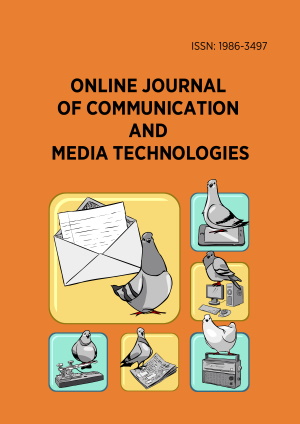Research Article
A Comparative Discourse Analysis of Western and Local (Nigerian) Media Depictions of the Presidential Pardon of Diepreye Alamieyeseigha
More Detail
1 Girne American University, North Cyprus* Corresponding Author
Online Journal of Communication and Media Technologies, 5(1), January 2015, 1-20, https://doi.org/10.29333/ojcmt/2492
OPEN ACCESS 3041 Views 1984 Downloads
ABSTRACT
Nigeria has been at the forefront in corruption scandals in the past and has consistently ranked high on the list of most corrupt nations in the world. The Nigerian government since president Obasanjo’s regime from 1999 to 2007 tried different ways to stamp out corruption; most notable was the formation of the Economic and Financial Crimes Commission (EFCC) in 2003. The EFCC led by Nuhu Ribadu, successfully indicted a lot of politicians and other fraudsters in the country, but due to judicial corruption or ineptitude, most of the indicted politicians were let go on some technicality or given suspended sentences. One of such politician indicted was Former Governor of Bayelsa State, Diepreye Alamieyeseigha. He was recently granted a presidential pardon by the President Goodluck Jonathan. This pardon has been widely publicized by both local and international press. This work is simply an analysis of both western and local media depictions of this pardon when they reported the news. The writer shall make use of Van Dijk’s social Ideological Discourse Theory and Ideological Square also by van Dijk. It is the hope of the writer that this work shall further enlighten scholars on how through careful analysis using the write tools, one can begin to understand the underlining meanings in words and get what the writer really means to portray or pass along.
CITATION (APA)
Olalekan, A. A. (2015). A Comparative Discourse Analysis of Western and Local (Nigerian) Media Depictions of the Presidential Pardon of Diepreye Alamieyeseigha. Online Journal of Communication and Media Technologies, 5(1), 1-20. https://doi.org/10.29333/ojcmt/2492

 The articles published in this journal are licensed under the CC-BY Creative Commons Attribution International License.
The articles published in this journal are licensed under the CC-BY Creative Commons Attribution International License.